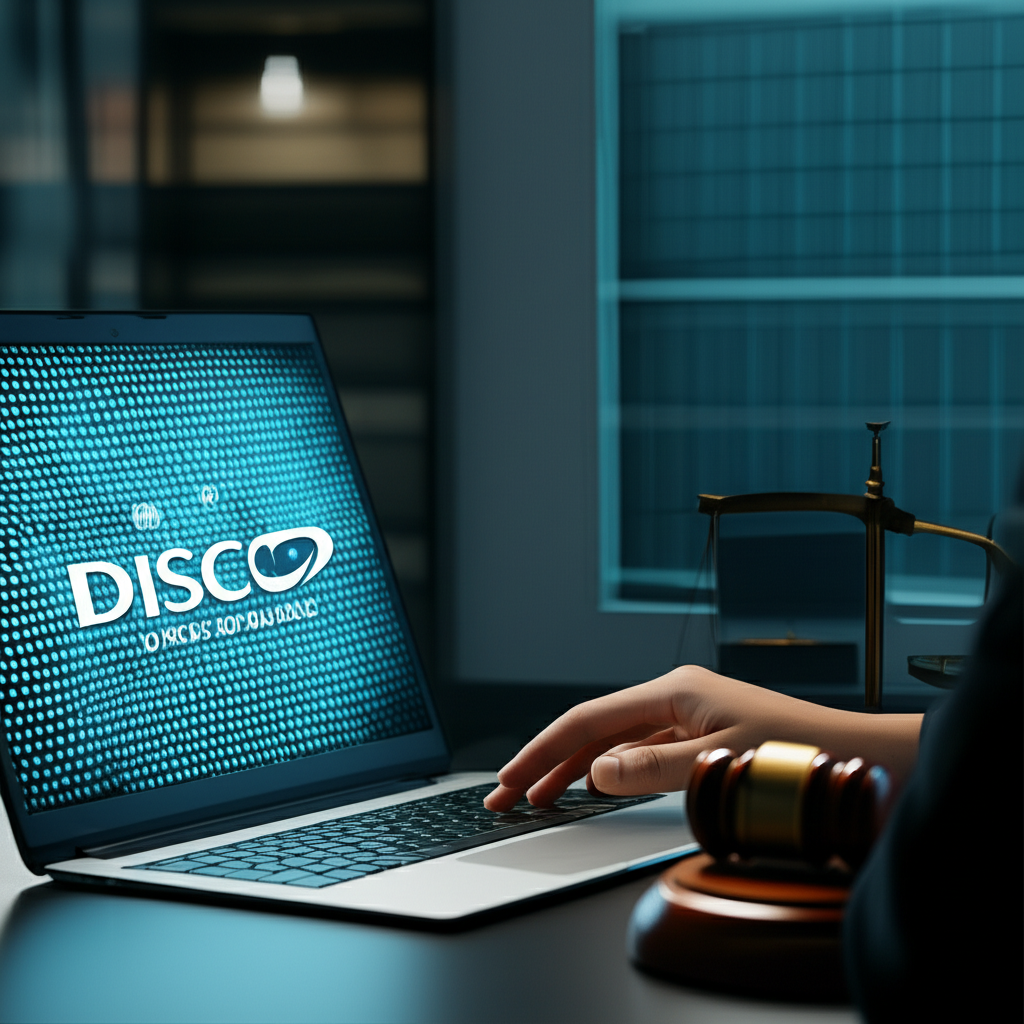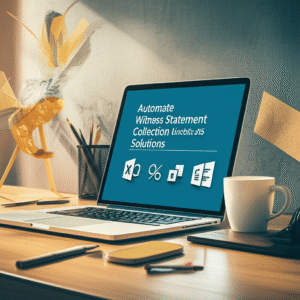Picking the right eDiscovery review platform can accelerate case strategy, reduce costs, and minimize risk. This week, we compare two leaders—DISCO Review and Reveal-Brainspace—through the lens of legal practitioners. We look beyond marketing to analyze features, analytics depth, compliance posture, Microsoft 365 integration, pricing models, and overall value to help firms and legal departments select the platform that best aligns with their caseload, workflows, and client expectations.
Table of Contents
- Overview of the Tools / Platforms
- Features & Capabilities Comparison
- Compliance, Security & Risk Management
- Collaboration & Knowledge Sharing
- User Experience & Learning Curve
- Integration with Microsoft 365 and Other Legal Tools
- Pricing & Licensing Models
- Pros & Cons of Each Solution
- Best Fit Scenarios
- Side-by-Side Comparison Table
- Decision-Support Framework
- Verdict
- Conclusion
Overview of the Tools / Platforms
DISCO Review is a cloud-native eDiscovery review solution focused on speed, simplicity, and AI-assisted workflows. It aims to streamline ingestion, early case assessment (ECA), document review, quality control, and production. DISCO emphasizes intuitive review experiences, scalable hosting, and AI features such as continuous active learning, email threading, near-duplicate detection, and automated tagging suggestions.
Reveal-Brainspace combines Reveal’s end-to-end eDiscovery capabilities with Brainspace’s renowned analytics. It is known for powerful visualization-driven insights—concept clustering, communication maps, social network analysis, and advanced active learning. Reveal-Brainspace is positioned for complex, multi-jurisdiction matters requiring deep analytics and flexible, enterprise-grade deployment.
Practical takeaway: If your priority is fast reviewer productivity and straightforward AI-assisted workflows, DISCO shines. If you need sophisticated analytics for massive, heterogeneous datasets, Reveal-Brainspace offers unmatched visualization and exploration tools.
Features & Capabilities Comparison
Core Review & Analytics
- DISCO Review: AI-assisted tagging, continuous active learning (TAR/CAL), email threading, near-duplicate detection, conversation threading for chat data, auto-redaction options, analytics dashboards, and production management. Emphasis on speed-to-first-insight and reviewer-friendly design.
- Reveal-Brainspace: Brainspace analytics for concept clustering, semantic search, topic modeling, communication and social network visualization, entity extraction, and advanced active learning strategies. Suited for investigations, antitrust, and compliance matters with complex data signals.
Data Types & Modern Communications
- Both platforms support common ESI sources including email, documents, cloud file shares, and chat/collaboration platforms (e.g., Microsoft Teams, Slack). Each offers timeline views, threading, and deduplication to reduce review volume and surface context.
Workflow Automation
- DISCO Review: Streamlined setup, configurable coding panels, batching, QC workflows, privilege logging aids, and templated production settings.
- Reveal-Brainspace: Highly customizable pipelines, flexible analytics-driven culling, visual pattern detection, and integration of advanced models into review workflows.
DISCO Review Flow (Speed to Review)
- Ingest and normalize data
- ECA filters + CAL to prioritize likely responsive docs
- Batch to reviewers; apply coding standards
- QC and privilege checks
- Produce and report
Reveal-Brainspace Flow (Analytics-led Discovery)
- Ingest data and run Brainspace analytics
- Map concepts, custodians, and communications
- Iteratively refine topics; seed active learning
- Targeted batching and expert review
- QC, privilege, and production
Compliance, Security & Risk Management
Both vendors position themselves for legal-grade security and defensibility. Typical controls include encryption in transit and at rest, SSO/SAML with MFA, role-based permissions, audit logging, and chain-of-custody tracking. Vendors commonly maintain certifications such as SOC 2 Type II and ISO 27001, and offer regional hosting options to support data residency needs. Always verify the current scope of certifications, subprocessor arrangements, and regional availability with each vendor, as these can change.
- Legal defensibility: Documented workflows (TAR protocols, sampling/QC reports) and audit trails support defensibility for both platforms.
- Privacy/GDPR: Tools to support minimization and structured redaction help, but organizational policy and legal oversight remain critical.
- Data governance: Integration with enterprise data sources and legal hold processes should be validated to align with internal governance standards.
Collaboration & Knowledge Sharing
- DISCO Review: Emphasizes reviewer throughput—clean coding panels, safe batching, shared saved searches, and dashboards that make team progress visible. Good for collaboration among internal and outside counsel with minimal friction.
- Reveal-Brainspace: Collaboration revolves around analytics artifacts—saved concept clusters, investigative maps, and visualizations that enable case teams and experts to form hypotheses and pivot quickly.
Both platforms support permissioned sharing, annotations, and auditable activity logs, enabling outside counsel, service providers, and clients to work together securely.
User Experience & Learning Curve
DISCO Review: Known for an intuitive interface and a relatively gentle learning curve for reviewers. Setup is fast, and AI assistance is surfaced in simple ways to speed coding without requiring analytics expertise.
Reveal-Brainspace: Powerful visualization requires acclimation. Reviewers can work efficiently once workflows are established, but power users (litigation support, data scientists, senior attorneys) get the most from Brainspace’s exploratory analytics. Training and change management are important to realize full value.
Integration with Microsoft 365 and Other Legal Tools
For most firms and corporate legal teams, Microsoft 365 is the system of record for modern communications and documents. Both platforms typically provide connectors and workflows to collect from Microsoft 365 data sources (Exchange Online, OneDrive, SharePoint, Teams) and to export productions to downstream matter management or DMS platforms.
- DISCO Review: Cloud-native ingestion and support for Microsoft 365 sources; workflows commonly include collection from custodians under hold, metadata preservation, and chat/threading for Teams data.
- Reveal-Brainspace: Enterprise-grade connectors and pipelines for Microsoft 365 and other sources (e.g., Slack), with Brainspace analytics enriching ingested content for semantic search and cluster analysis.
Beyond Microsoft 365, both integrate with common legal tech ecosystems (legal hold, matter management, DMS, review accelerators). Confirm connector scope, throttling limits, and preservation capabilities for your tenant and region.
Pricing & Licensing Models
Both DISCO Review and Reveal-Brainspace typically use quote-based pricing. Expect variations by data volume, user counts, features, and hosting regions, with enterprise agreements often bundling ingestion, analytics, and review.
- DISCO Review: Common structures include per-GB hosting with optional bundles for processing/ECA and AI features, or subscription-based models for steady caseloads. Transparent, predictable pricing is a stated focus, but specifics vary by deal.
- Reveal-Brainspace: Often licensed as an enterprise platform with analytics included, combining per-GB data charges and user access. Project-based pricing is available via partners and service providers for one-off matters.
Cost optimization hinges on data minimization in ECA, targeted analytics, reviewer efficiency, and production discipline—areas where workflow maturity can greatly influence total cost of review (TCOR).
Pros & Cons of Each Solution
DISCO Review
- Pros: Intuitive UI, rapid reviewer onboarding, strong CAL and threading, streamlined productions, fast time-to-value, and predictable workflows for litigation-heavy teams.
- Cons: Analytics depth is solid but less exploratory than Brainspace’s visualization suite; extremely complex investigations may benefit from more advanced conceptual tooling.
Reveal-Brainspace
- Pros: Market-leading analytics and visualizations, robust exploratory capabilities, powerful active learning strategies, and flexibility for complex, multi-custodian, multi-language datasets.
- Cons: Steeper learning curve and change management; advanced features may be underutilized without skilled administrators or analyst support.
Best Fit Scenarios
- Small to mid-size firms with frequent litigations: DISCO Review’s speed, usability, and AI-assisted coding can reduce cost and accelerate productions.
- Enterprise legal departments and ALSPs with complex investigations: Reveal-Brainspace’s conceptual analytics and network visualizations help uncover patterns, anomalies, and key narratives at scale.
- Regulatory, antitrust, and multilingual matters: Reveal-Brainspace stands out for deep topic modeling and multi-dimensional data exploration.
- Tight timelines or lean litigation support teams: DISCO Review’s streamlined setup and simpler training needs are compelling.
Side-by-Side Comparison Table
| Category | DISCO Review | Reveal-Brainspace |
|---|---|---|
| Primary Strength | Fast, intuitive review with AI-assisted coding and efficient productions | Advanced analytics and visualizations for complex data exploration |
| Analytics Depth | Strong CAL, threading, near-duplicate detection, targeted insights | Concept clustering, semantic search, communication and social maps |
| Microsoft 365 Integration | Cloud-native workflows for Exchange, OneDrive, SharePoint, Teams | Enterprise connectors and enrichment for Microsoft 365 and other sources |
| User Experience | Easy for reviewers; minimal ramp-up | Powerful but more complex; best with trained admins/analysts |
| Collaboration | Simple batching, coding standards, saved searches, dashboards | Collaboration around analytics artifacts and investigative visuals |
| Compliance & Security | Legal-grade security controls; verify current certifications and regions | Enterprise security posture; verify current certifications and regions |
| Typical Pricing Models | Per-GB hosting/subscriptions; project or portfolio-based | Enterprise platform licensing with per-GB and user components |
| Best For | Firms needing speed, reviewer productivity, predictable workflows | Teams needing deep analytics for investigations and complex matters |
Decision-Support Framework
Use this checklist to align platform choice with your operational realities and client commitments:
- Data Profile: What are your typical volumes, file types, and chat/collaboration sources (e.g., Teams, Slack)?
- Case Mix: Do you handle routine litigations or complex, multi-jurisdiction investigations?
- Analytics Needs: Do you need concept clustering, communication maps, and exploratory visualizations—or efficient CAL-driven review?
- Microsoft 365: What level of integration, preservation, and tenant/region support is required?
- Security & Compliance: Which certifications, data residency options, and audit artifacts do you need for your matters?
- Team Skill Set: Do you have analysts/litigation support to leverage advanced features, or do you need a minimal training curve?
- Budget & Predictability: Are you optimizing for per-matter cost control or enterprise-wide subscription economics?
- Time-to-Value: How quickly must your team move from ingestion to meaningful insights?
- Outside Counsel & Vendor Ecosystem: How will partners, ALSPs, and clients collaborate securely and efficiently?
- Future Proofing: Will the platform scale with growing data, new sources, and evolving AI capabilities?
Verdict
DISCO Review excels in reviewer productivity, straightforward AI assistance, and fast time-to-value—ideal for firms and legal teams that prioritize efficient, defensible workflows without heavy analytics overhead. It is a strong fit for litigation-centric teams seeking predictable processes and rapid productions.
Reveal-Brainspace leads on advanced analytics and visualization—best for complex investigations, regulatory matters, and large, diverse datasets where conceptual exploration and communication mapping uncover critical signals. Teams with skilled admins or analyst support will extract maximum value.
Recommendations:
- Best for small to mid-size firms with frequent litigations: DISCO Review.
- Best for enterprise investigations and analytics-heavy matters: Reveal-Brainspace.
- Hybrid portfolios: Consider vendor agreements enabling both, or choose the platform that fits the majority of your caseload and augment with service partners when needed.
Conclusion
Both DISCO Review and Reveal-Brainspace are proven eDiscovery platforms—differentiated chiefly by emphasis: streamlined review efficiency versus deep analytics exploration. Your choice should reflect matter complexity, team skill sets, and integration needs, especially with Microsoft 365. Align technology with process maturity and client expectations to drive better outcomes, predictability, and defensibility across your docket.
Want expert guidance on improving your legal practice operations with modern tools and strategies? Reach out to A.I. Solutions today for tailored support and training.





